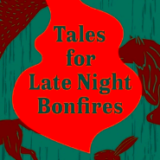Following the release of her new novel, dystopian political sci-fi VOX, we talk with author Christina Dalcher about her influences, her characters and more…
Your protagonist Jean is in many ways quite a relatable one – she never took a huge interest in politics until it was too late, and often throughout VOX it feels like she’s reacting rather than working with a grand plan. She’s brave, resourceful and terrifyingly brilliant – but an everywoman rather than a superwoman. Was her character inspired by anyone in particular?
Jean is absolutely an Everywoman, and as such I didn’t base her on any one person in either the real or the imaginary world. She could be your next-door neighbour, or your aunt, or you. I think that’s the appeal of this type of character; there’s both familiarity and relatability.
The importance of language over communication plays a huge role in VOX – I had never heard of aphasia until now! – and you of course have a background in linguistics. To what extent did the doctorate inspire the story?
I’m sure you and many others have heard of aphasia—even if you might not be familiar with the clinical word for language loss associated with brain trauma. If you’ve ever known anyone who has suffered a stroke and subsequently lost some facility with language, then you’re familiar with the disorder. My doctorate is in a different field, specifically sound patterns in connected speech and dialect change, so it didn’t directly inspire the storyline in VOX. But as a linguist, I’m always thinking about the complexity of human language, of how effortlessly we acquire such a complex system, and how we can’t help but take this amazing faculty for granted.
One thing that shook me whilst reading VOX was how quickly and easily the children – particularly Steven – fell into line. There’s been a lot of concern in the media about the online radicalising of teenage boys on the internet – is this something that you had in mind?
Anyone can be radicalised. All we need to do is look back through history to find examples (think, for instance, of the Hitler Youth culture, which of course ensnared both boys and girls). And youth is especially vulnerable: we teach children to adopt our gods, our politics, our dress, and our ethics. If our teachings lean toward the extremities of a spectrum, it seems inevitable that our youth will become extremists.
There has been an explosion of feminist dystopias in recent years – do you see VOX as part of that wider canon? Which other novelists – both male and female – do you admire, or do you feel influenced you?
I like to think of VOX as a dystopia without the need for a qualifier. It happens to have a female protagonist, and since the protagonist of a dystopia is almost always the object of oppression, on the surface VOX looks like a feminist story. But let’s think about this: the book is about taking away a fundamental right, in this case speech, and as such, anyone could have been the target.
As for influencers, Stephen King, Lionel Shriver, Ray Bradbury, Ayn Rand, George Orwell, and Aldous Huxley are all sitting on my bookshelves.
Between an emboldened far-right movement, and the rise of autocratic governments around the world and at home, is it a challenge to write a dystopia at the moment? How do you see your work in relation to the wider world?
There are certainly emboldened movements, both on the right and the left, these days. What frightens me more is seeing how easily we’ve become polarised, moving toward the edges of a political scale. When I look at the world this way, I find it very unchallenging to write dystopian fiction, as examples of far-from-center (and often anti-democratic) ideologies are cropping up all around us. I imagine many writers who tackle some kind of hypothetical radicalism, whether left-leaning or right-leaning, only need to envision a small push further along the line from where we sit at the moment.
You live part-time in the US, and part-time in Italy – are there any Italian writers you would like to recommend?
I don’t actually live in Italy—I’ve just been spending quite a bit of time there in recent years. Now we find ourselves more frequently in southern Spain. When I read in other languages, I usually read English works in translation, but I’m currently enjoying Elena Ferranti’s Neapolitan chronicles, and I adore Pablo Neruda’s poetry in the original Spanish.
VOX by Christina Dalcher is out now (£8.99, HQ), and has been shortlisted for the Goldsboro Books Glass Bell Award. The winner will be announced on Monday 16th September.
This article was originally posted on SciFiNow










